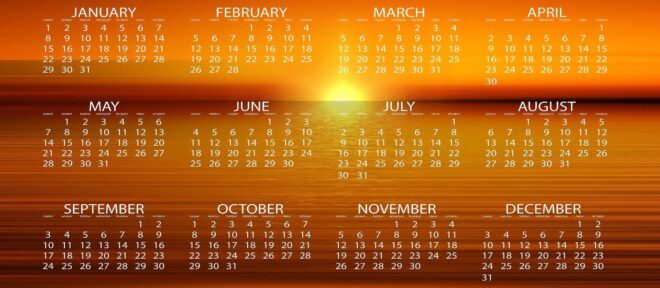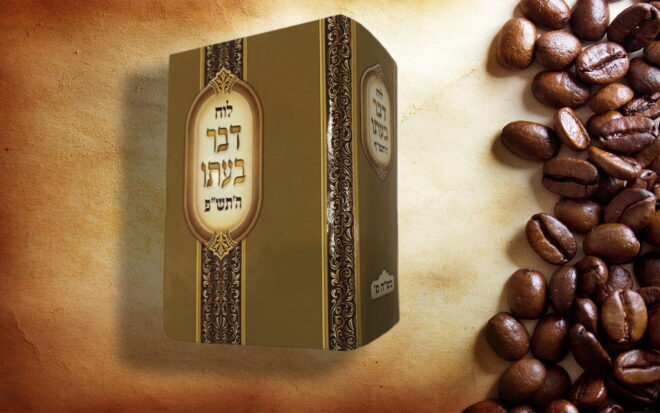 In the Parsha Code Removed from KosherJava Zmanim Calendar API article posted two years ago, I documented the removal of the parsha code from the KosherJava Zmanim API due to licensing issues. I would like to announce that thanks to Yechiel Paricher, the zmanim library now supports a clean LGPL implementation. Yechiel’s Jan 17, 2019 pull request that was a port of his C libzmanim code, was finally merged on August 22nd, and over the past day, the old formatting code for parshiyos was restored after being changed to work with the new code. The new code not only restores the old functionality, but adds support for the special parshiyos of Shekalim, Zachor, Parah and Hachodesh. It also added support for Shabbos Mevorchim and Machar Chodesh.
In the Parsha Code Removed from KosherJava Zmanim Calendar API article posted two years ago, I documented the removal of the parsha code from the KosherJava Zmanim API due to licensing issues. I would like to announce that thanks to Yechiel Paricher, the zmanim library now supports a clean LGPL implementation. Yechiel’s Jan 17, 2019 pull request that was a port of his C libzmanim code, was finally merged on August 22nd, and over the past day, the old formatting code for parshiyos was restored after being changed to work with the new code. The new code not only restores the old functionality, but adds support for the special parshiyos of Shekalim, Zachor, Parah and Hachodesh. It also added support for Shabbos Mevorchim and Machar Chodesh.
Tag: Hebrew Calendar
Is the Year 5780 Spelled תש״פ or תש״ף?

ישבנו על המדוכה כיצד לכתוב תש״ף או תש״פ. כדי לרצות בעלי 2 הדעות, נקטנו (כאשר נקטנו בלוח ה׳תש״ן) שבשער הכריכה יכתב ה׳תש״פ ואילו בכריכת הגב יכתב ה׳תש״ף.
In the calendar he published an 11-page essay on the subject by Rabbi Yaakov Matalon who provides the following reasons to use the תש”פ version:
- ראשי תיבות or Hebrew abbreviations only end with a final form letter if the abbreviation is typically read as a word such as רמב״ם ,רמב״ן and רי״ף. Abbreviations such as יוה״כ that are read as יום הכיפורים are always spelled ending in a non-final form letter. The Academy of the Hebrew Language reads the year as the proper word תָּשָׁ״ף, while many (most) disagree and read it as תאו-שין-פא.
- The abbreviated year is not an abbreviation at all, but a number in its Hebrew format, and final form letters do not belong at the end of a number. This has been the tradition in writing and publishing Jewish books, where the non-final form spelling of page and chapter numbers has traditionally been used.
 This can be seen in the Talmud, Shulchan Aruch, Tehilim and other sefarim. There have been exceptions to this rule, but they are indeed exceptions. The same tradition is in place on most Jewish monuments.
This can be seen in the Talmud, Shulchan Aruch, Tehilim and other sefarim. There have been exceptions to this rule, but they are indeed exceptions. The same tradition is in place on most Jewish monuments. - In some cases the final form מנצפ״ך letters are considered to have a different numerical value. See the Sefer Haaruch on the אטב״ח entry (the Atbach / אטב״ח cipher should not be confused with the אתב״ש / Atbash cipher) and the Maharsha’s explanation on Rashi in Sukka 52b.
- For kabbalistic reasons the Sefer Chassidim in chapter 1154 mentions that the end form of the letter ף is avoided where possible in tefilah (מוסף is an unavoidable exception). The Sefer Harokeach mentions the same concept in chapter 337 regarding the lack of any ף in Birkas Hamazon. This would apply to this year that ends in an 80, but not the other 4 examples every century.
Rabbi Matalon ends with:
מסקנתנו היא, שמִּבֵּין שני האֳפנים, עדיף לכתוב באות רגילה, לא-סופית: תש״פ, תש״צ. מכּל השיקולים נמצא שזה האופן העדיף. מצד שני, נראה שאין מקום לטענה שהכותב באות-סופית, תש״ף, תש״ץ וכדומה, טועה הוא. אופן כתיבה זה, למרות חסרונותיו, מקובל אצל רבים, ואין מי שרואה בו טעות.
In short, neither is incorrect, but the better of the two is the non-final form תש״פ.
Formatting the Year in the KosherJava Zmanim API
The HebrewDateFormatter class in the KosherJava zmanim library coded years ago produced the final form of תש״ף (with the exception of single character years such as the year 5050). This logic was included in all ports that I am aware of. With a recent commit, the option for formatting years ending in מנצפ״ך was added, and the default changed to produce the non-final form version of תש״פ. Detailed information can be seen in the HebrewDateFormatter API documentation.
